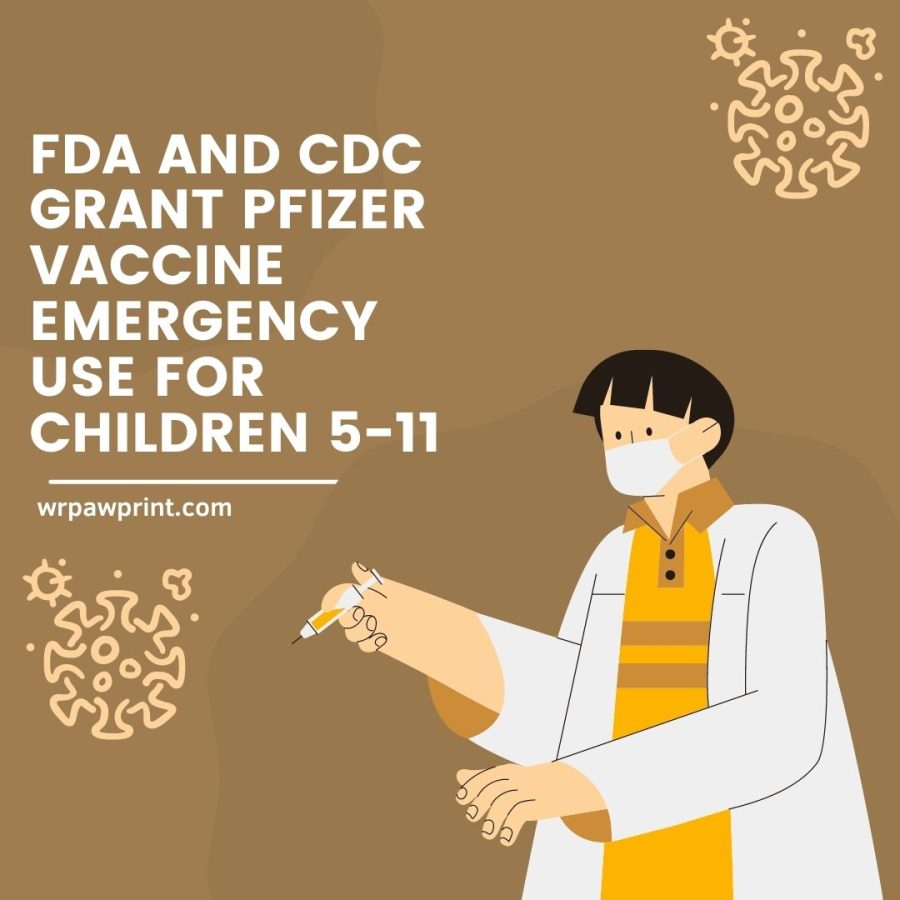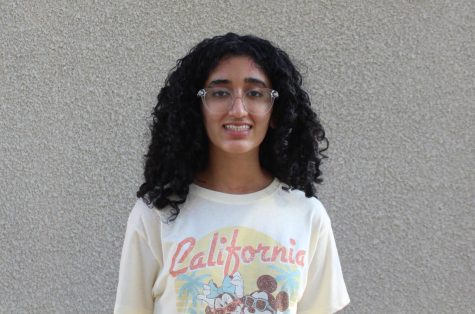FDA and CDC grant Pfizer vaccine emergency use for children 5-11
December 2, 2021
For the past eleven months, the US, and the world, have been in a race to vaccinate people against COVID-19, which has now killed 5 million people worldwide, according to Reuters. Many vaccines have been in use around the world, but since December 2020, two two-shot vaccines have been in use in the US— ones from Pfizer and Moderna. The Pfizer vaccine has been in use for people above the age of 12, while the Moderna vaccine is only authorized for people above 18, according to the CDC.
The Pfizer vaccine passed major hurdles necessary to start vaccinating young children. On Tuesday, Oct. 26, the FDA granted emergency use authorization for the Pfizer vaccine in children aged five to eleven. On Tuesday, Nov. 2, the CDC followed suit and also approved the vaccine.
According to NBC News, the vaccine was first approved by an FDA panel, which voted 17-0 in favor of approval, with one abstaining vote.
According to NPR, Pfizer’s vaccine authorization request then went to the CDC. First, the CDC’s Advisory Committee on Immunization Practices voted unanimously to approve the vaccine for emergency use. Then, the approval request went to the CDC director, Rochelle Walensky, who issued the recommendation.
America has one of the highest COVID-19 death tolls in the world— more than 780,000, according to Johns Hopkins University.
According to the CDC, some of the most common risk factors for contracting COVID-19 in children include cancer, neurological conditions, and lung conditions, such as asthma.
Dr. Atul Bembi, a physician in Los Angeles, explained, “We’ve been trying to get everybody vaccinated, and when you start vaccinating more people, the theory is that you can first of all protect more people, and then you are going to keep the virus from spreading as much. If people don’t get sick, they don’t spread the virus to other people as much. The first strain of COVID was not causing that many children to get sick, or adolescents to get sick. The new strains seem to affect kids, also. That’s where it’s going to be helpful- it’s going to keep younger kids from getting sick.”
The authorization of the Pfizer vaccine came as the US experienced a surge in pediatric COVID-19 cases over the summer. According to the American Academy of Pediatrics, children represent 16.5 percent of all COVID cases in the U.S., and for the week ending Oct. 21, children made up 25.1 percent of COVID-19 cases reported in the country. As of Oct. 28, around 6.4 million children have tested positive for COVID-19.
Now that the vaccine has been authorized for children, a major concern for vaccinating young children is the risk of developing myocarditis, a rare heart condition that causes inflammation, according to a national study cited in Nature Journal.
The study shows that when given the Pfizer vaccine, the risks of myocarditis and additional dangerous side effects in children are very low.
“[The risk of getting myocarditis] is not significant,” Dr. Bembi added. “There are very few kids who get it, and it is very rare… People are panicking more than they need to. It is not a significant number that should make a difference. Anytime you do something, you look at the harm and benefit of it. The coronavirus can cause a lot of harm to kids, and kids who have had myocarditis have not been significantly sick compared to kids who have gotten COVID- some of them have gotten very sick from it.”
Overall, Dr. Bembi expressed that the vaccine is more beneficial for children than harmful, and most are only likely to experience mild side effects.
“The most common [symptoms] people get are soreness, fever, chills, [and] feeling tired. The other two side effects some people have gotten are clotting, which is very rare, and myocarditis, which is also very rare. There are no long-term side effects that we know of from the vaccine. So far as we know, COVID is causing more long-term effects. It’s not just making people sick for a couple of days or a couple of weeks, but there are a significant number of people who are getting what’s called long-haul syndrome, where people are getting weakness, tiredness and they can’t focus and concentrate as well for many months.”


